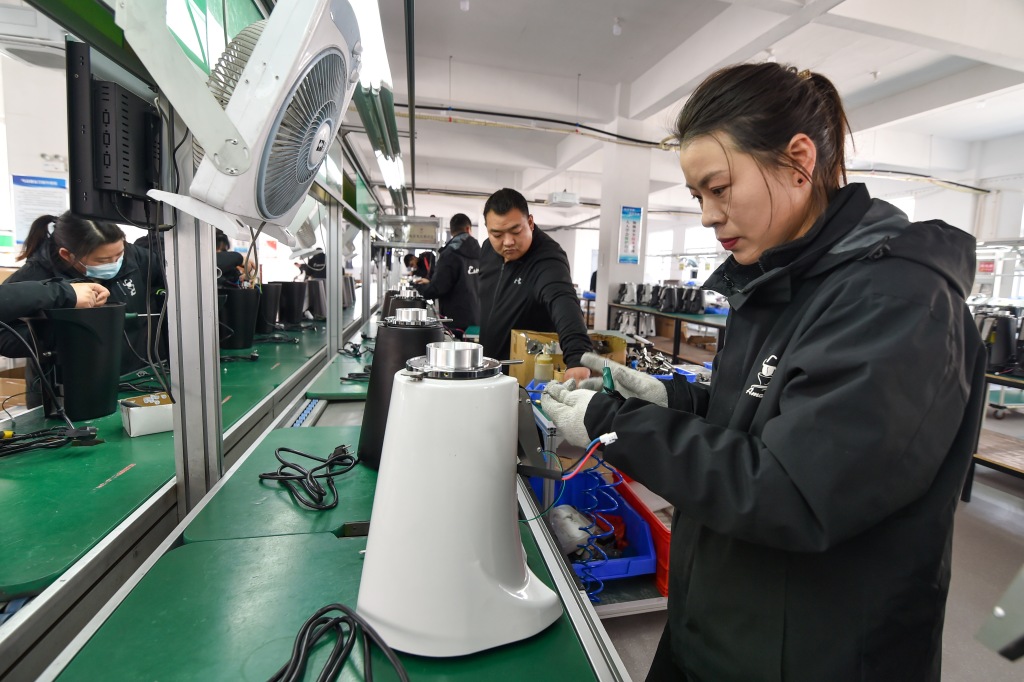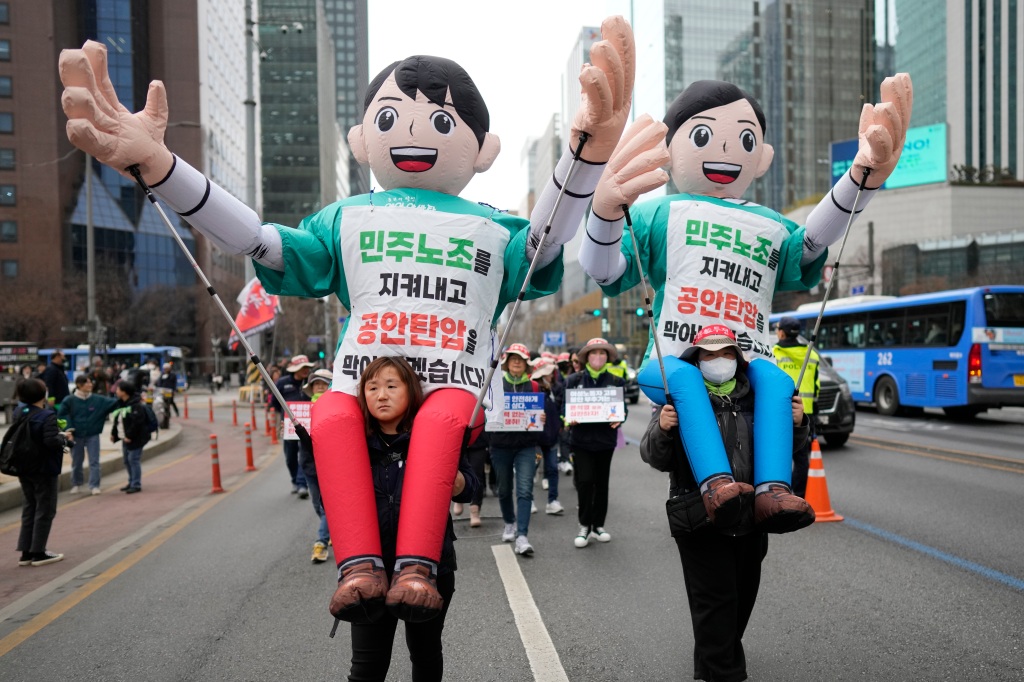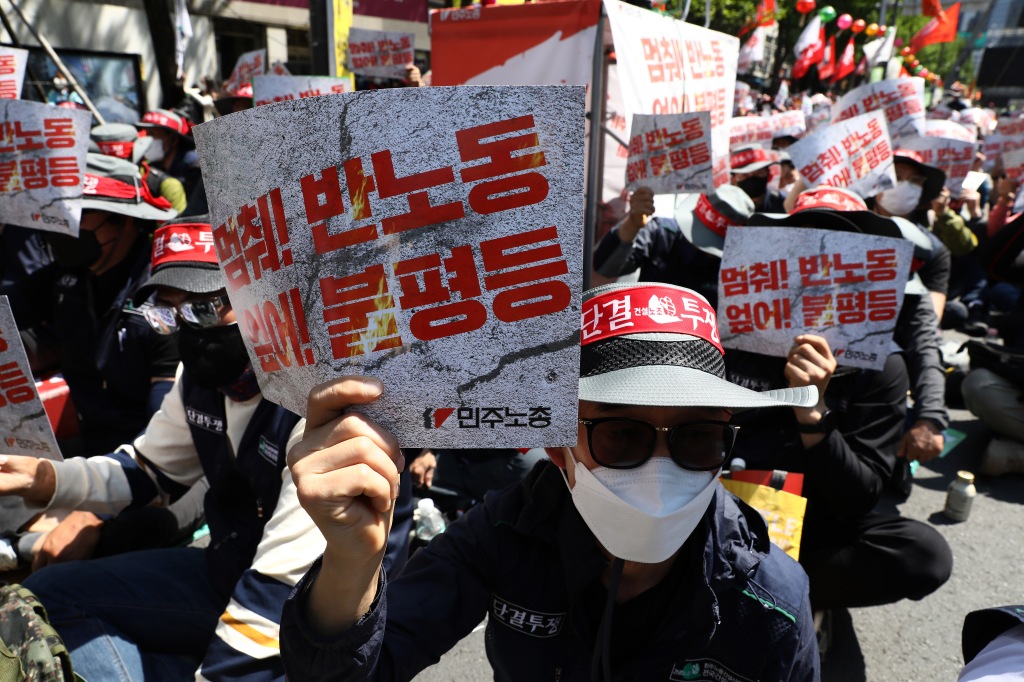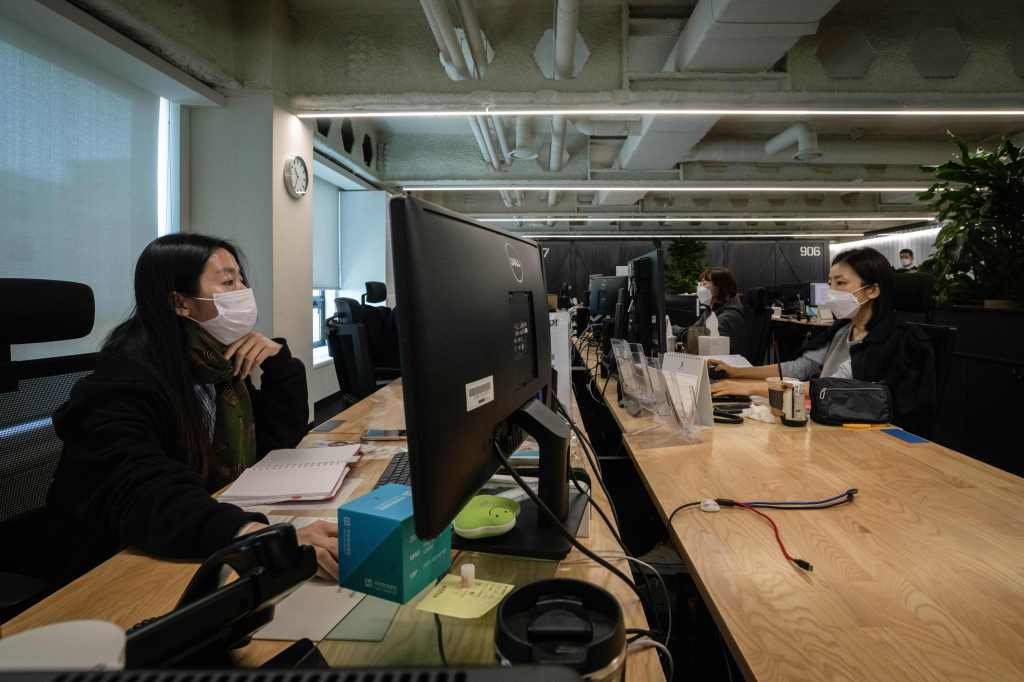South Korea ditches 69-hour workweek plan after youth revolt
South Korea has backed off a plan to lengthen the workweek to 69 hours after a near-revolt by the country’s young people.
Five years ago, South Korea cut the number of hours that its labor-obsessed people were allowed to work to 52 in total — a regular 40 hours, then 12 hours of paid overtime.
But earlier this month, the nation’s conservative government sought to lift the cap after pressure from business groups who want to boost productivity, according to CNN Business.
Young people were having none of it, the Washington Post reported.
President Yoon Suk Yeol’s popularity immediately tanked among Millennial and Generation Z workers — just four days after his administration announced the plan, his disapproval ratings leapt among those age groups to 79 and 66%, respectively, according to the Washington Post.
The angry backlash has forced the government to reconsider the proposal.

“The president views workweeks longer than 60 hours as unrealistic, even when including overtime,” said Ahn Sang-hoon, a senior presidential adviser, according to the Washington Post. “The government will listen more carefully to opinions from [Millennials and Generation Z] workers”
South Koreans are already relative workaholics, logging an average of 1,915 hours per worker annually, according to the Organization for Economic Cooperation and Development.


Only people in Chile, Colombia, Costa Rica and Mexico toiled more in 2021, the group said. The United States averaged about 1,791 hours per year in comparison.
South Korea began limiting labor hours in 2018 after hundreds died from overwork the year before, according to The Week.
The phenomenon — know in the country as “gwarosa,” or “death by overwork” — included fatalities from heart attacks, strokes, industrial accidents or sleep-deprived driving, The Week reported.

Some South Koreans told the Washington Post that they still go above and beyond the government cap for no compensation. But few were eager to officially return to longer workweeks.
“We’ve already felt the benefits of shorter weeks,” Lee Jong-sun, a professor of labor relations at Korea University’s Graduate School of Labor Studies in Seoul, told the Washington Post. “Why would anyone want to go back?”
Read the full article Here


